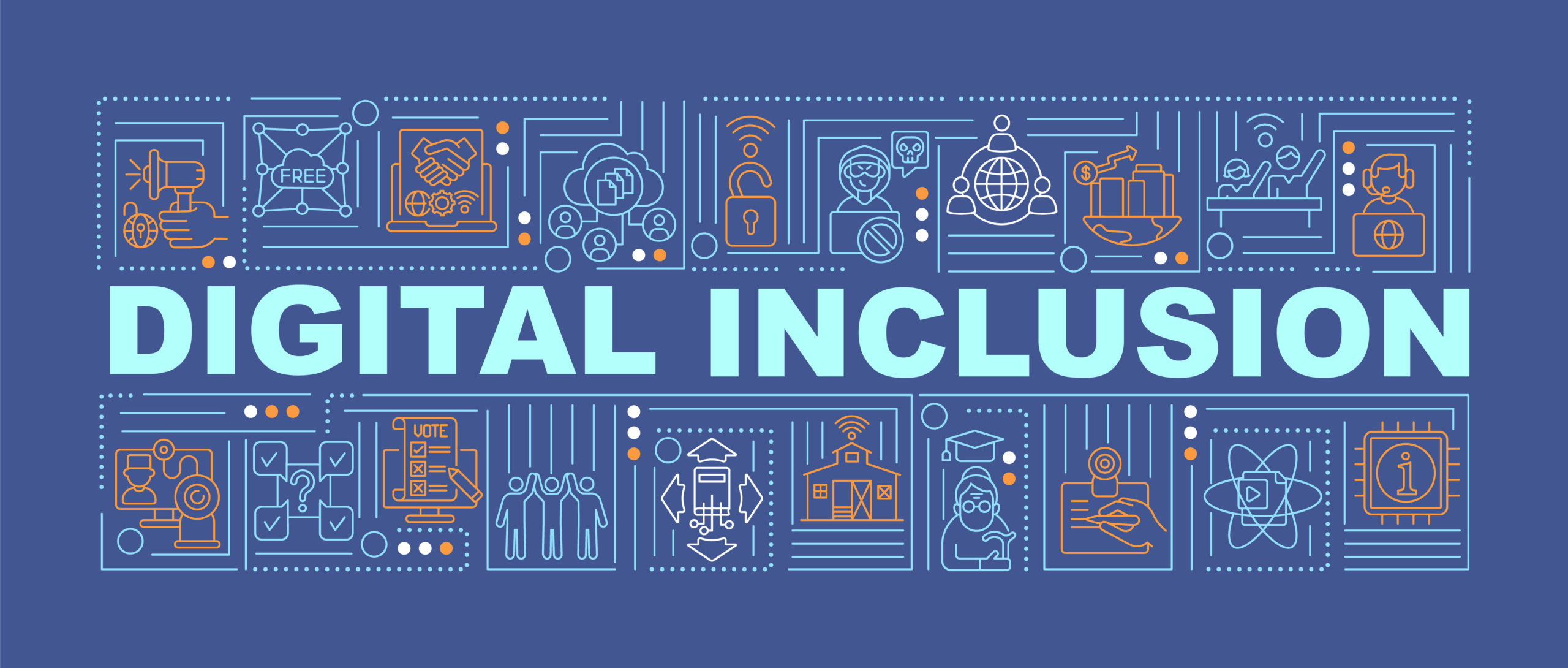“We have an opportunity, and a responsibility, to make sure everyone has access to the digital world, so they can learn, find work, and realise their potential.” – Tim Berners-Lee, inventor of the World Wide Web.
In a world that is increasingly dominated by digital technology, it is more important than ever for everyone to have access to the internet. Unfortunately, not everyone has access to the same opportunities as others, and this is especially true for those in rural and low-income areas. This is why it is so important for Local Authorities to focus on digital inclusion. In this blog post, we will discuss what digital inclusion is, why Local Authorities should care about it, and how they can improve access to digital technology for their community members.
1. Local Authorities Should Invest in Employability Programs
Local authorities should invest in programs that are focused on increasing employability for their community members. This is because digital technology can provide individuals with skills and opportunities that they otherwise would not have access to. Local authorities can provide training, certification, and other resources to help people become more digitally literate and gain the necessary skills for higher-paying jobs or for those economically inactive citizens to re-enter the labour market.
2. Prioritise Accessibility For Everyone
Accessibility should be a priority for Local Authorities when it comes to digital inclusion. It is important to ensure that all citizens have access to the same digital information and services regardless of their income level or location. Local Authorities should also make sure that these services are affordable and easy to use. Local Authorities can also provide resources to help people with disabilities make the most of digital technology.
3. Develop Local Digital Infrastructure
Local Authorities should work to develop a strong local digital infrastructure by investing in high-speed internet access and implementing other measures such as free Wi-Fi hotspots or public computer centres. This will ensure that everyone has access to digital technology regardless of their economic situation. Local Authorities should make sure that these services are secure and reliable so that citizens can trust them when using them for important tasks such as banking or filing taxes.
4. Provide Education and Resources
Local Authorities should provide education and resources to help citizens understand how to use the available digital services, as well as the security risks associated with using the internet. Local Authorities can provide classes, workshops, and other resources to help citizens become more digitally literate. Local Authorities should also work with local organisations and businesses to ensure that everyone has access to the necessary tools and resources for digital inclusion.
5. Create Local Digital Initiatives
Local Authorities should create digital initiatives that focus on improving digital inclusion in their community. These initiatives could include running a program to make sure that everyone has access to the right technology, creating policies around data privacy, or providing resources for those who are not comfortable or familiar with using digital services. Local Authorities should also monitor the progress of these initiatives so they can make any necessary changes if the desired outcomes aren’t being achieved.
Conclusion
Local Authorities have a responsibility to ensure that everyone in their community has access to digital technology and can use it safely and securely. By investing in employability programs, prioritising accessibility for everyone, developing local digital infrastructure, providing education and resources, and creating local digital initiatives, Local Authorities can make sure that their citizens are able to benefit from the opportunities presented by digital technology.
Lack of internet connection and digital knowledge is a huge barrier to employment. Imagine trying to find a job in today’s world without being able to use the internet or understanding how to use common computer programs. This is the reality for millions of UK residents, which limits their ability to find well-paying jobs and get ahead financially. By increasing digital inclusion in our communities, we can help close the opportunity divide and ensure that everyone has an equal shot at achieving their career goals. Sign up for our freemium package today and receive a free marketing toolkit that will help you get started on your journey to promoting digital inclusion in your community.

